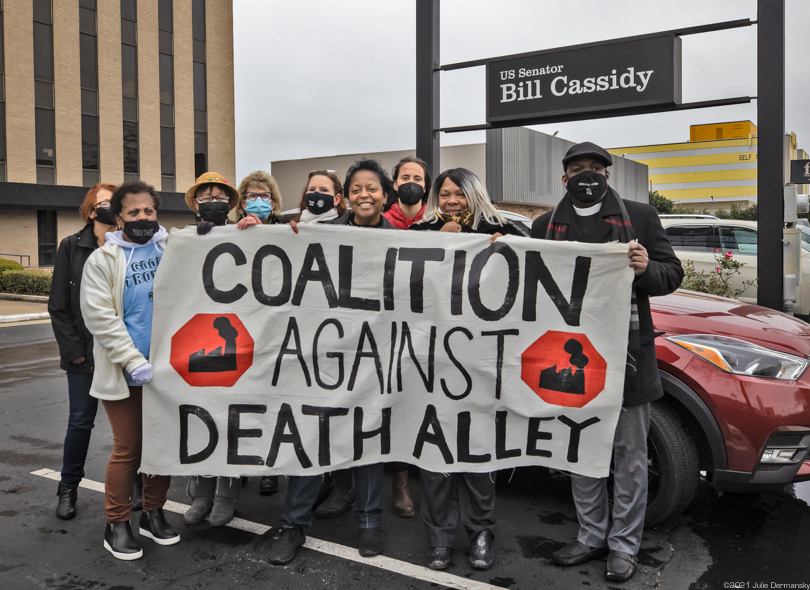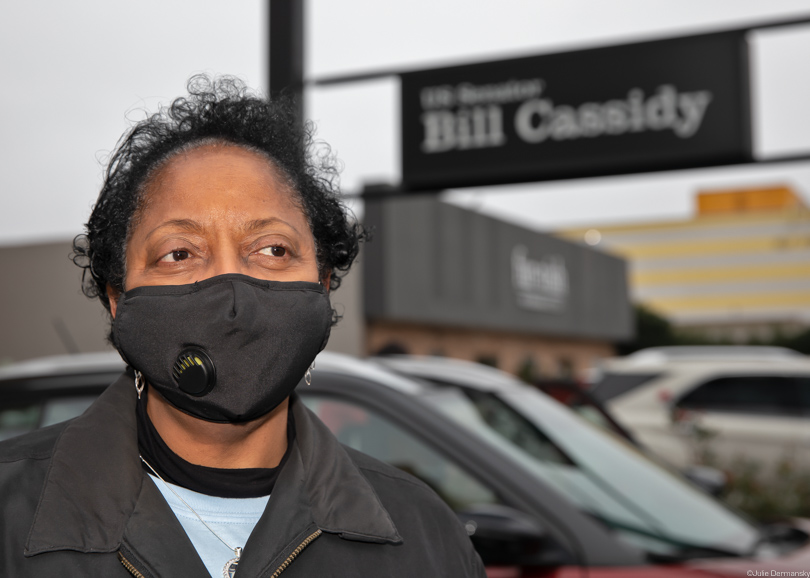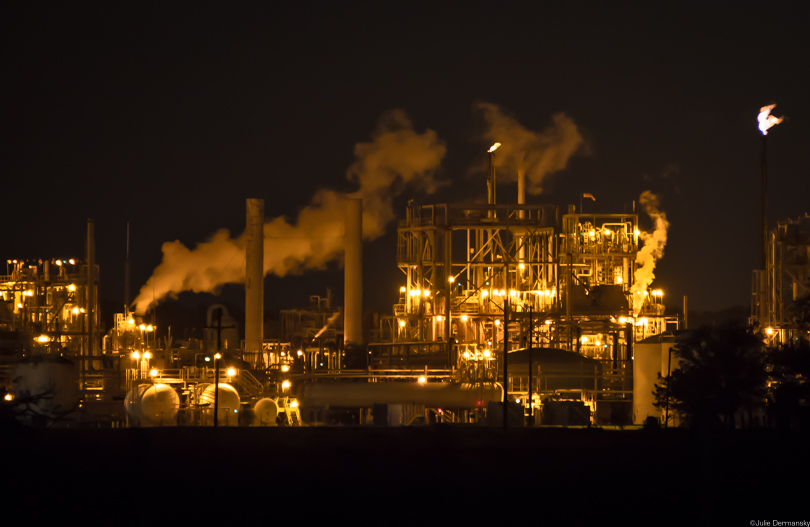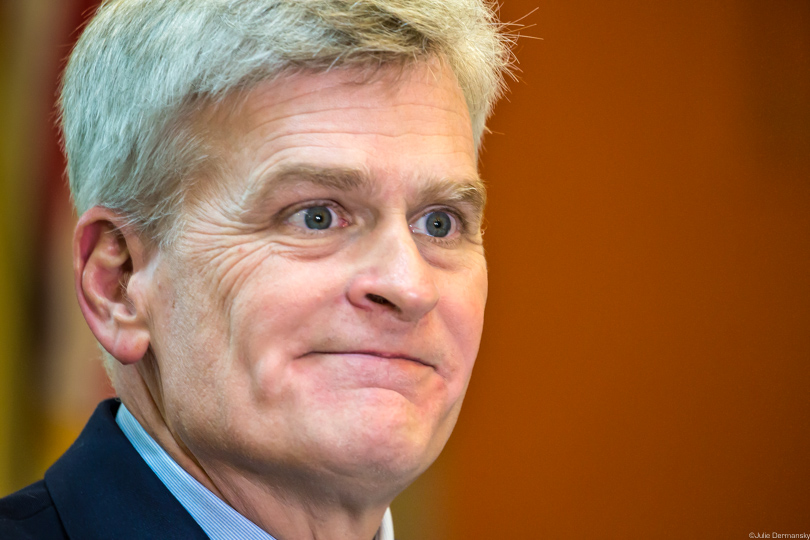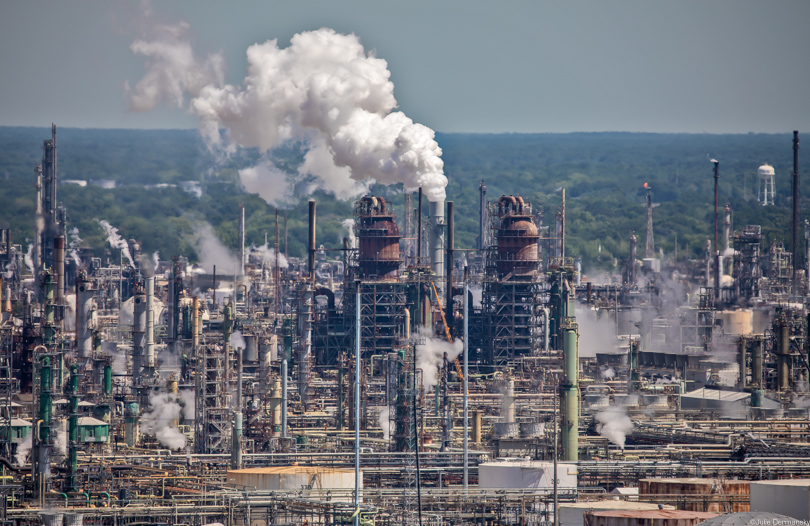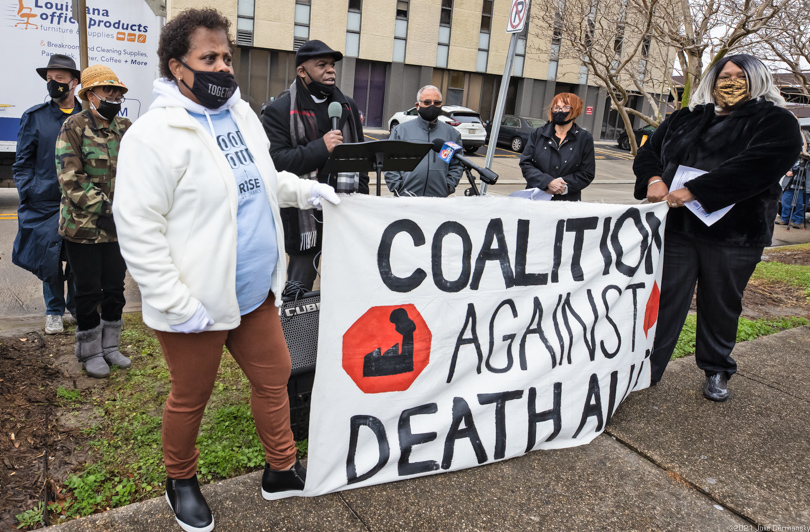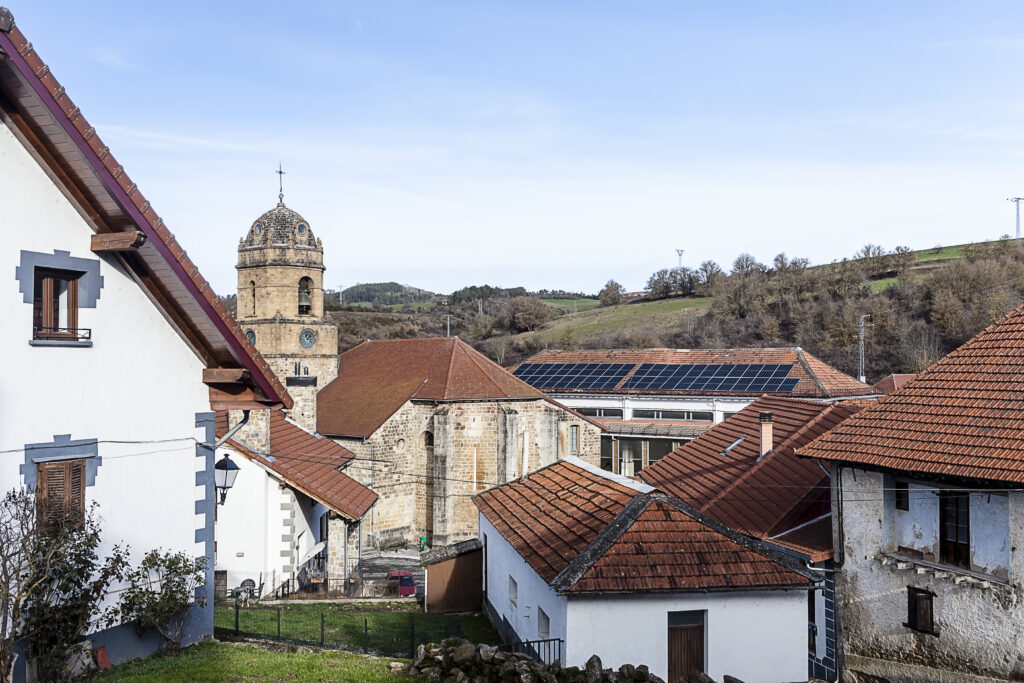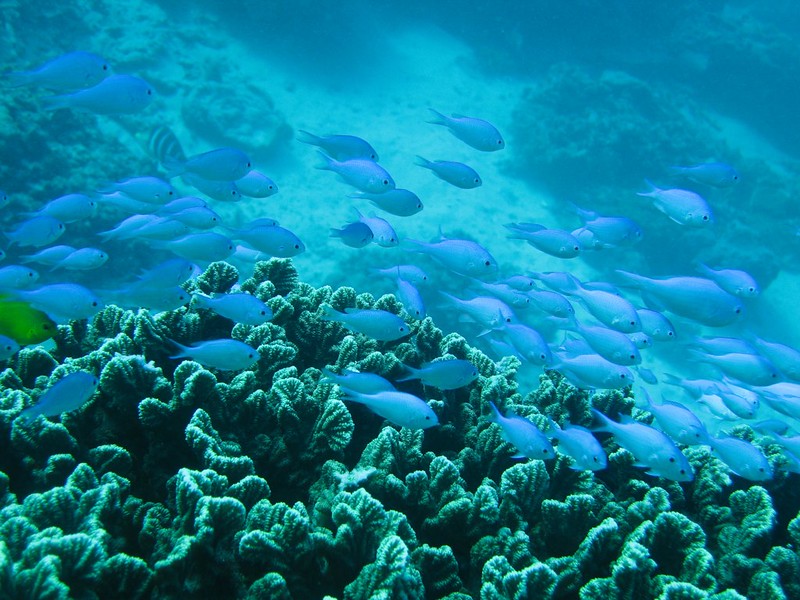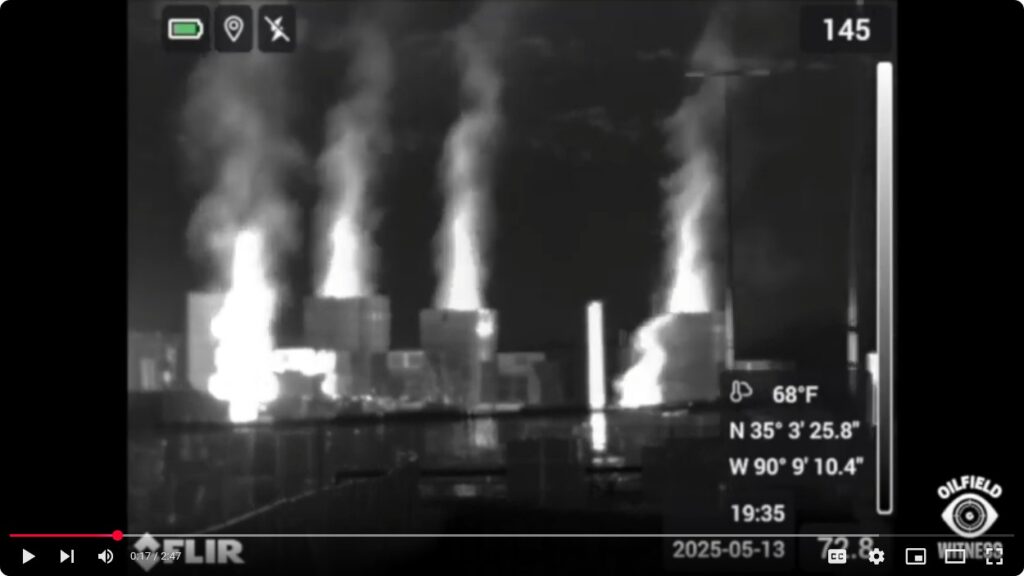“It took courage for Senator Cassidy to vote against Trump,” Sharon Lavigne, the founder of the faith-based grassroots organization RISE St. James, said about the Louisiana Republican after the impeachment hearing of the former president. “He voted with his conscience, not his party. Now he has to find the courage to honor his oath as a doctor and stop more petrochemical plants from being built in fenceline communities.”
But Senator Bill Cassidy voting with the Democrats to convict Trump doesn’t represent a change in his patrician support of the fossil fuel industry.
Cassidy proved this point ahead of the impeachment hearing by condemning President’s Biden use of the term, ”Cancer Alley.” In remarks Biden made on January 27 after signing executive orders related to climate change and science policy, Biden promised to make environmental justice a priority in areas hard-hit with pollution like “Cancer Alley” in Louisiana.
Biden was referring to the 85-mile stretch along the Mississippi River between Baton Rouge and New Orleans that’s lined with dozens of petrochemical plants and oil refineries that is commonly referred to as “Cancer Alley” due to industrial air pollution.
Cassidy said that the phrase “Cancer Alley” sounds like rhetoric to him and he won’t stand for it. A physician specializing in digestive ailments, Cassidy acknowledged Louisiana has higher rates of cancer than other states, but blamed the higher cancer rate on victims’ lifestyle choices, including smoking, obesity, and certain infections.
Sharon Lavigne, founder of RISE St. James in front of Senator Cassidy’s office in Metairie LA. Credit: Julie Dermansky
The Denka Performance Elastomer plant, owned by DuPont until 2015, in St. John the Baptist Parish, Louisiana. The EPA determined that those living closest to the plant have almost a 50 times greater chance of getting cancer from airborne toxins than the national average. Credit: Julie Dermansky
Members of The Coalition Against Death Alley (CADA) were outraged by Cassidy’s stance. They gathered outside of the senator’s office in Metairie, Louisiana, on February 12 to push back against Cassidy’s dismissal of Biden’s use of the term, ”Cancer Alley.”
CADA is made up of a group of Louisiana-based residents and members of various local and state organizations. They refer to “Cancer Alley” as “Death Alley” because they think “Cancer Alley” is too gentle of a term for the region. The coalition focuses on fighting against and bringing attention to the petrochemical industry’s expansion that is underway in Louisiana.
“The term ‘Cancer Alley’ is a correct assessment, but not sufficient to convey the full extent of the devastation caused by environmental racism. The effects of toxic poisons Louisianans endure in the River Parishes include asthma, kidney disease, and autoimmune diseases, so we’ve renamed it ‘Death Alley,’” Rev. Manning with the Greater New Orleans Interfaith Climate Coalition and a member of CADA said at the February 12 press conference.
The Advocate reported that the Louisiana Chemical Association also objected to Biden’s use of the phrase “Cancer Alley.” It claimed that the Louisiana Tumor Registry, tasked to record the state’s incidences of cancer, found no cancer clusters in the area.
But the Advocate reported that the tumor registry doesn’t prove either side’s point. Problems with the tumor registry’s data, the outlet explained, include the fact that “the data is based on large and irregularly sized census tracts, across which toxic emissions can vary widely. For privacy reasons, the registry doesn’t publish cancer data for areas with low populations, including many of the small and rural communities where chemical plants began cropping up after leaving urban areas in the 1950s.”
“Cassidy’s support for the petrochemical industry goes against his oath to do no harm as a physician,” Lavigne, who is also a member of CADA, said at the press conference. She pointed out that her slave ancestors loaded cotton onto boats after “picking it from sunrise to sunset” to be sent to some of the same international markets that the toxic chemicals produced are sent to today. “Back then, Black folks were worked to death. Today, we are being polluted to death,” Lavigne said.
Members of CADA pointed out that Louisiana has the highest toxic air emissions per square mile of any state, according to the Environmental Protection Agency’s (EPA) Toxics Release Inventory, and the EPA’s most recent (2014) National Air Toxics Assessment that showed that parts of Louisiana have high potential cancer risks and/or a high respiratory hazard index — one of the reasons CADA wants permits for new petrochemical plants halted. “The regulators are letting the existing plants make us sick,” Lavigne said, “and allowing more will hasten the deaths of more of us.”
Senator Cassidy in 2017 at a townhall meeting in Metairie, LA. Credit: Julie Dermansky
DeSmog reached out to Cassidy’s office with questions about his stance on expanding the petrochemical industry in fenceline communities but didn’t get a response in time for publication.
In 2017, however, at a town hall meeting Cassidy held in Metairie focused on healthcare, Cassidy told me that he thinks regulators will protect Louisiana’s fenceline communities from harmful emissions as the petrochemical industry expands. I pointed out that environmental groups had already sued the EPA to get the agency to do its job multiple times. Cassidy responded to this by saying that he is confident enforcement of environmental rules by the EPA and the Louisiana Department of Environmental Quality does protect fenceline communities.
However, a new management audit by the Louisiana Legislative Auditor’s office issued on January 20, 2021, found that the Louisiana Department of Environmental Quality has failed to adequately identify industrial polluters that don’t properly report emission violations, and that it should enforce those violations more aggressively.
Lavigne would like to see Cassidy introduce bills that help assure her community clean air instead of complaining about the term “Cancer Alley.”
So, while Cassidy broke from the Republican Party and voted to convict Trump on February 13, his support for the fossil fuel industry has shown no sign of wavering.
Exxon Mobile plant in Baton Rouge, Louisiana. Credit: Julie Dermansky
Instead, Cassidy signed on to the Protecting Our Wealth of Energy Resources (POWER) Act of 2021. If passed, the Act would prohibit the Biden administration from blocking energy or mineral leasing and permitting on federal lands and waters without Congressional approval.
Cassidy also recently joined a group of other Republican senators to introduce a bill to reverse Biden’s executive order revoking the permit for the Keystone XL pipeline. In a press release about the bill, Cassidy claimed stopping the pipeline from being built will eliminate 11,000 jobs and destroy development in the oil and gas industry: “sending energy jobs overseas where there are worse environmental standards will only increase global emissions,” he said.
But Jane Kleeb founder of Bold Nebraska, a progressive political advocacy group, dismissed Cassidy’s claims about the harm that may result from halting the construction of the Keystone XL.
“Big Oil has lied to Americans for decades about climate change and jobs all while taking over $22 billion in taxpayer-funded subsidies,” Kleeb told DeSmog. ”11,000 is the number they inflate for a 3-year construction term, with the ‘indirect’ jobs that groups like Chamber of Commerce have a job multiplier tool to come up with,” Kleeb explained.
“The State Department report says 50 permanent jobs for the first few years then that goes down to 15 jobs. Most of those are also in Canada, not USA jobs.”
“Our fight is with Big Oil, and specifically TransCanada, who continue to use politicians to peddle their inflated job predictions. Not with the workers,” Kleeb said of the Keystone XL’s owner, now known as TC Energy. “So, while the Republicans like Senator Cassidy continue to lie to Americans, we stand proud that farmers and ranchers’ livelihoods were protected from a risky foreign tar sands pipeline that would have threatened our land and water supply for generations.”
Rev. Manning speaking at the press conference in Metairie, LA, on February 12. Credit: Julie Dermanksy
Facing backlash in Louisiana where the Republican Party censured Cassidy for his vote to impeach Trump, Cassidy said he believes others eventually will see what he did was right: “I am very confident that as time passes people will move to that position.”.
But, noted Lavigne, now is also the “ time for Cassidy to do the right thing for the environment.”
“Cassidy needs to think about how history will judge him for the stance he took on Cancer Alley,” Lavigne said, “and do the right thing.”
Main image: Members of the Coalition against Death Alley in front of Senator Bill Cassidy’s office on February 12. Credit: Julie Dermansky
Subscribe to our newsletter
Stay up to date with DeSmog news and alerts


